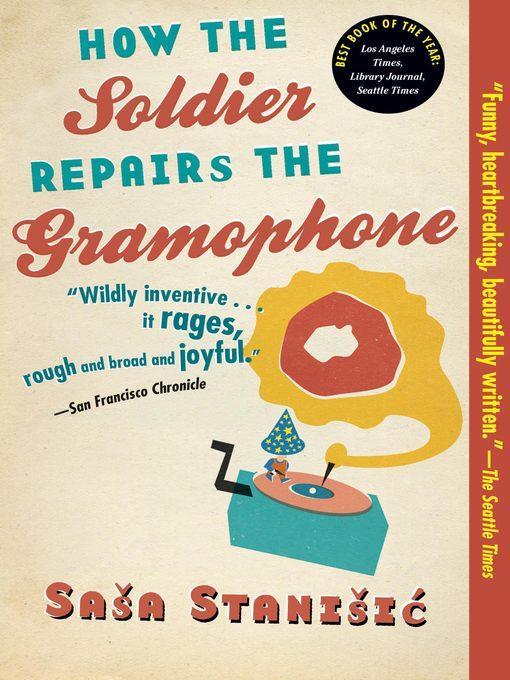
How the Soldier Repairs the Gramophone
- اطلاعات
- نقد و بررسی
- دیدگاه کاربران
نقد و بررسی

June 2, 2008
Stanisic's debut novel is the moving story of a young Bosnian refugee named Aleksandar Krsmanovic. Aleksandar is the apple of his family's eye, but his sheltered childhood ends when ethnic wars brewing in the surrounding republics make their way to his hometown in the spring of 1992. As Serbian troops storm the village, Aleksandar's family hides, but nowhere is safe. The violence forces the family to Germany, where they struggle to adjust to their new lives as refugees. In the depths of their despair, Aleksandar's grandmother makes him promise to \x93remember when everything was all right and the time when nothing's all right.\x94 Aleksandar keeps his word, and the memories pour out of him like a river. The author organizes Aleksandar's recollections as a stream of consciousness, operating on no distinct linear time line and often stopping one story and starting another in the same breath. It is difficult to keep up with this frantic pace, but it pays to be patient because a remarkable life's journey unfolds.

Starred review from April 15, 2008
It's the early 1990s in Viegrad, and young Aleksandar Krsmanovic´ is devastated by the death of his grandfather, who taught him that with his imagination he can do anything. And so he devises a kaleidoscopically cracked and beautiful view of the world that carries him through any boy's normal growing pains to the ominous moment when a classmate announces that he doesn't have the right name; soon, his city is conquered by former countrymen, and his family escapes to Germany. There, Aleksandar struggles to contact the girl he left behind and makes wildly fractured lists, trying to anchor his life in memories of a homeland that's changed forever. Having fled Viegrad, first novelist Staniic´ now listens to his protagonist's grandfather and writes brilliantly cockeyed prose that borders on the surrealor maybe the psychedelic. (One chapter is titled "How the soldier repairs the gramophone, what connoisseurs drink, how we're doing in written Russian, why chub eat spit, and how a town can break into splinters.") This book won Germany's Readers' Prize and was nominated for the Deutscher Buchpreis, and rightly so; it's voice of a bold young Europe and a child's-eye view of war all the more poignant because it's "not" gritty realism. Highly recommended for anyone not expecting standard plot. [See Prepub Alert, "LJ" 2/15/08.]Barbara Hoffert, Library Journal
Copyright 2008 Library Journal, LLC Used with permission.




دیدگاه کاربران